AESA PROGRAMMES
- Building R&D Infrastructure
- Developing Excellence in Leadership, Training and Science in Africa (DELTAS Africa)
- Human Heredity and Health in Africa (H3Africa)
- Africa’s Scientific Priorities (ASP)
- Innovation & Entrepreneurship
- Grand Challenges Africa
- Grand Challenges Innovation Network
- Rising Research Leaders/Post-Docs
- AESA RISE Postdoctoral Fellowship Programme
- African Postdoctoral Training Initiative (APTI)
- Climate Impact Research Capacity and Leadership Enhancement (CIRCLE)
- Climate Research for Development (CR4D)
- Future Leaders – African Independent Research (FLAIR)
- Critical Gaps In Science
- Clinical Trials Community (CTC)
- Community & Public Engagement
- Mobility Schemes: Africa-India Mobility Fund
- Mobility Schemes: Science and Language Mobility Scheme Africa
- Research Management Programme in Africa (ReMPro Africa)
- Science Communication/Africa Science Desk (ASD)
- Financial Governance: Global Grant Community (GGC)
- AAS Open Research
- CARI Programmes
- Evidence Leaders Africa (ELA)
All Fellows
AAS Fellows and Affiliates are distinguished researchers who represent the continent’s talent and promising men and women from across the globe.

Medical & Health Sciences
Sudan
Not Found
The requested Content is currently unavailable.

Engineering Technology & Applied Sciences
Sudan
Not Found.
The content your are looking for is currently unavailable.
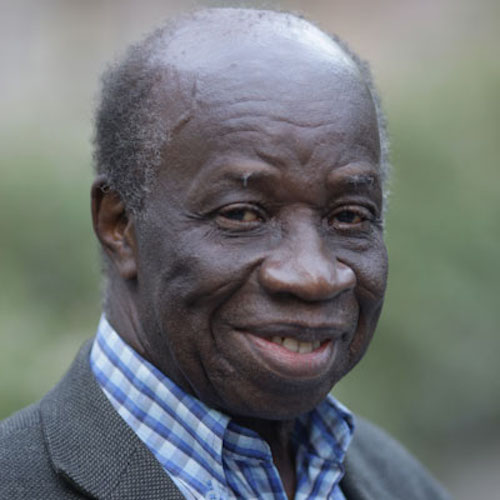
Mathematical Sciences
Ghana
Professor of Mathematical Physics. Educated at Imperial College of Science Technology and Medicine, UK and Princeton University USA, Qualifications: DIC, M.A. PhD.
Former: Dean of Science and Pro Vice Chancellor Kwame Nkrumah University of Science and Technology; Chairman, Ghana Atomic Energy Commission, Chairman, Council for Scientific and Industrial Research; Governor, International Atomic Energy Agency, Vienna Austria; President, Mathematical Association of Ghana. Vice President, African Academy of Sciences; President, Ghana Academy of Arts and Sciences.
Currently: President, African Institute for Mathematical Sciences; Member, Scientific Council, International Centre for Theoretical Physics, Italy; Member, International Advisory Council of Molecular Frontiers, Sweden; President, African Physical Society; Vice President, International Union of Pure and Applied Physics.
Honours and Awards: Prince Philip Gold Medal for his work on Soft X-ray spectroscopy, African Mathematical union Medal. World Bank/IMF African Club, Distinguished Scientist Award
Order of Volta Companion, Millennium Excellence Award, Hon. Fellow Institute of Physics (U.K), Fellow TWAS, Hon. Fellow, Ghana Institution of Engineers, Chartered Fellow, British Computer Society, Hon. D.Sc (from six Universities)
He has organized and directed several workshops and conferences at national and international levels on Information and Communication Technology and Mathematical Sciences in various countries including the USA, Australia, Italy, United Kingdom, Frances, Sweden, South Africa, Senegal, Botswana, Kenya, Guyana, Cote d’Ivoire etc.
For example, he was Chairman of the Williamsburg Conference on International Information Economy in Virginia, USA in 1986; Chairman and Organizer of the Section on Computer Education in Developing Countries of the 1980 International Federation of Information Processing (lFIP) Congress in Melbourne. Australia; and Chairman of the panel discussion on the Financial and Quantitative Aspects of Computer Education at the IFIP Congress, Marseilles, France in 1975 and Member of International Panel on Requirements of developing countries regarding Informatics Education, Lausanne, Switzerland, 1981. Chairman: International Working Party for the Analysis of Economics and Commercial Impact of Transborder Data Flow, Roma, Italy; Vice President, United Nations Review conference on the Non-proliferation of Nuclear Weapons, Geneva (1975); Appointed by the Secretary-General of United Nations to be among a group of 12 international experts commissioned to advice United Nations in Nuclear Weapon, (1979).
He served as Chairman of the International UNESCO and IBI Conference on Informatics for Development, Chairman of “IFIP CONGRES80” section on Computer Education in developing countries (Australia)
He was the founder of the Ghana Energy Research Group (ERG) and has been its coordinator since 1985. He was Chairman of the Technical Committee, DANIDA/Ghana Government Strategic National Energy Plan 2000 - 2020. .
He established the First Computer Science Department for Research, Training and Education at Kwame Nkrumah University of Science and Technology. It was the first Computer Science Department in any university in Sub Saharan Africa. He established the Laser Research Centre in the Physics Department of the University of Cape Coast.
He was the first to introduce the theory of electron-hole scattering resonances effect on soft X-ray spectroscopy in metals. This effect has been observed experimentally.
To commemorate his contribution to science, the government of Ghana issued a postage stamp with his portrait in 2006.

Mathematical Sciences
Cameroon
Not Found.
The content your are looking for is currently unavailable.

Agricultural & Nutritional Sciences
Kenya
Dr Frederick Joshua Wangati was born at Kanyariri, Kiambu County on 12th October 1936. He was educated at Kanyariri Primary School, ACK Kabete Intermediate School and sat Cambridge School Certificate at the Government African School, Kagumo, in Nyeri. He then proceeded to Makerere University College in Uganda where he graduated with BSc (Physics) degree of London University in March 1963.
During College vacations, Dr Wangati had the unique opportunity to work under internationally recognized scientists at the East African Agriculture and Forestry Research Organization (EAAFRO), an institution of the East African Community. It was here that he was exposed to, and developed interest in, the relatively new discipline of Agricultural Meteorology. He was therefore, upon graduation, recruited by the East African Community and appointed as a Research Officer Trainee in the Physics Division of the EAAFRO. He was sent for further training at the Rothamsted Experimental Station, UK, in 1964 under British Council Scholarship where he graduated with MSc (Physics) degree of the University of London in 1966.
Upon return to Kenya, Dr Wangati was registered for PhD studies under the University of East Africa through the Faculty of Agriculture of Makerere University College. He was awarded the PhD degree in 1970. During this period most expatriate research officers left the country and Dr Wangati was promoted first to head the Physics and Chemistry Division and in 1971, to the position of Deputy Director of EAAFRO. A major responsibility of this position was to oversee the accelerated recruitment and training of local research officers in overseas universities. Unfortunately, this appointment put an end to his direct participation in research projects, but was able to participate in part-time teaching at the Department of Soil Science of the University of Nairobi. He was also appointed Editor of the East African Agriculture and Forestry Journal and played a key role in the formation of the Soil Science Society of East Africa under his chairmanship.
Upon collapse of the East African Community in June 1977, Dr Wangati was transferred to the Kenya Government and appointed Director of the new Agricultural Research Department at Muguga. He was subsequently moved from Muguga and appointed Secretary of the Agriculture Sciences Department, a function of the National Council for Science and Technology. A major responsibility was to participate in the frantic discussions with the Ministries of Agriculture and Natural Resources on the future management of the research activities at Muguga. The outcome was the formation of the Kenya Agricultural Research Institute, KARI. And the Kenya Forestry Research Insitute, KEFRI.
Dr Wangati was appointed Executive Secretary of the National Council for Science and Technology in 1981. A major responsibility of this position was the implementation of the newly formulated national Science and Technology Policy. This required him to participate in the Governing Boards of all national research organizations and to represent the government in major conferences on science and technology within and outside the country. He also served as part time lecturer and supervisor of postgraduate students at the Department of Meteorology of the University of Nairobi.
As a Member of the Board of the International Centre for Insect Physiology and Ecology, Dr Wangati had the privilege to work closely with the Late Prof Thomas Odhiambo and was soon involved in the formation and operation of the Kenya National Academy of Sciences. He also participated with Prof Odhiambo at the meetings of the Third World Academy of Sciences in Trieste, Italy, and the formation of the African Academy of Sciences in 1985. He thus became a Founder Fellow of the AAS. Dr Wangati was also invited to serve as a consultant in the External Reviews of most CGIAR Centre programmes which involved external travel to many countries and continents. He was eventually appointed to serve as a member of the Governing Boards of CIAT in Colombia and IBSRAM in Thailand.
Dr Wangati finally opted for early retirement from Government service in September 1989 and intensified his activities as a consultant in evaluation of donor funded research projects in the region. He was also appointed to lead an environmental technology project at the UNEP Desertification Programme for two years and a Strategic Planning project for ASARECA based at Entebbe in Uganda.
Dr Wangati eventually retired from consultancy activities which needed travel to difficult environments and for some time concentrated on desk based project evaluations and advisory services. His final assignment was chairmanship of an inter-ministerial committee which developed the new Kenyan policies on the organization of agricultural research and extension services. The resulting policies were adopted and enacted into law in 2013. The implementation of these policies saw the formation of the Kenya Agricultural and Livestock Research Organization (KALRO). The formation of a new Agricultural Extension System was, however, affected by the transfer of Agricultural services as a devolved function under the new County governments. During these activities and thereafter, Dr Wangati was fortunate to find refuge at the Cedar Grove Junior Academy, a private primary school founded by his wife in 1979. They also created a successful hospitality institution, the Twiga Hill Lodge, within their residential estate at Hardy, Karen. Full retirement however started when the Twiga Hill Lodge had to close down in 2014, followed closely by Cedar Grove Junior Academy in 2016.
Dr Wangati is married to Minnie Wanjiru and they are blessed with three children and four grandchildren.
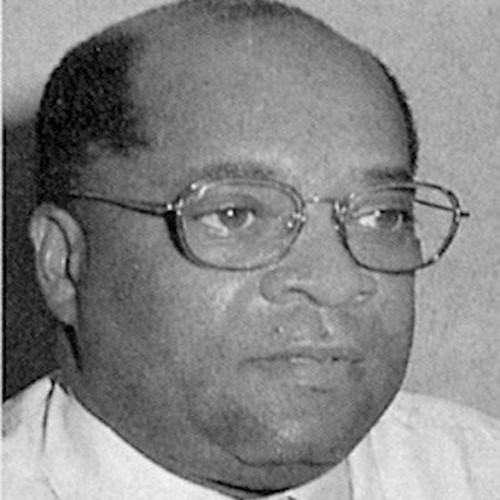

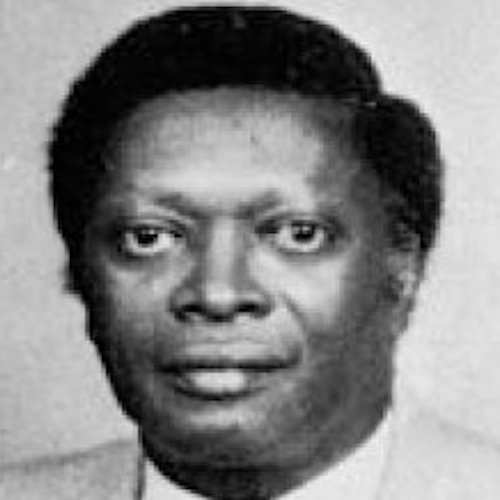
Chemical Sciences
Ghana
Bekoe holds a BSc Special Degree in Chemistry with a Subsidiary in Mathematics from the U. Of London, a PhD in Chemical Crystallography from the U. Of Oxford and an Hon. DSc from U. Of Ghana. He is currently Member, Board of Directors, Institute of Economic Affairs, Ghana. He was Dean, Faculty of Science (1971-73), Pro Vice Chancellor (1973-75) and Vice Chancellor (1976-83), U. Of Ghana. He served as director, UNESCO Regional Office of Science and Technology for Africa, Nairobi, Kenya; UNESCO Representative to Kenya, Mauritius, Seychelles, Somalia, Tanzania and Uganda (1983-85); Regional Director for Eastern and Southern Africa, International Development Research Centre of Canada, Nairobi, Kenya (1986-92); Member of Council, United Nations University, Tokyo, Japan (1978-82); President, Ghana Academy of Arts and Sciences (1993-96); Chairman, The Council of State, Ghana (2005-08).

Biosciences
Egypt
Not found.
The content you are looking for is currently not available.

Medical & Health Sciences
Nigeria
Aminu was born in August 1939. Studying medicine, he obtained an M.B.B.S from the University of Ibadan in 1965, and a PhD in Medicine from the Royal Post-Graduate Medical School, London in 1972. He was appointed a Fellow of the Nigerian Academy of Science in 1972, a Fellow of the Royal College of Physicians, London in 1980 and a Fellow of the West African College of Physicians also in 1980. He was made a Distinguished Fellow of the Nigerian Postgraduate Medical College in 2004.
Aminu was a Consultant in Medicine, Senior Lecturer and Sub-Dean, Clinical Studies at the University of Ibadan Medical School (1973–1975), and Executive Secretary of the National Universities Commission (1975–1979). He was Visiting Professor of Medicine at Howard University College of Medicine in Washington DC (1979–1980) and Vice-Chancellor of the University of Maiduguri, 1980-1985. He was also Professor of Medicine at the University of Maiduguri (1979–1995).
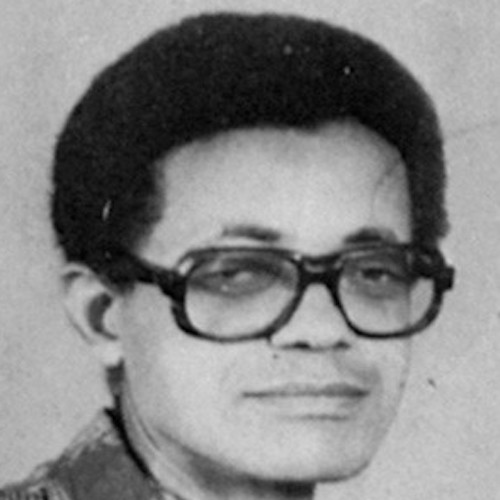
Kalenga Felix Malu Wa
Democratic Republic of the Congo
|Elected: 1985
Physical Sciences
View Profile
Physical Sciences
Democratic Republic of the Congo
Professor Félix Malu wa Kalenga was a scientist in the field of Nuclear Physics, and principle player on the project for the construction of the nuclear reactor Mark II for the Centre Régional d’Études Nucléaires de Kinshasa. From the very beginning he was a brilliant student and concluded his undergraduate studies in 1960, going to the United States and getting his Master of Science from the University of California, Berkley in 1963. From 1970 to 2000 he occupied the position of professor at Faculté Polytechnique de l’Université de Kinshasa and turned into an emeritus professor after 2000. He was a great enthusiast for the development and use of atomic energy in Africa. He was also a spokesman for new sources of renewable energy, producing one of the first studies about the energy demand for the development of Africa.
He published many papers, mainly on the promotion for the use of nuclear energy for progress and not destruction. He was also quite active in the investigation of nuclear forces. In 1965 he wrote a text about the necessity to combine science, technology and social problems, or social needs, for the success and solutions for the continent of Africa. He also wrote about the paradigm of quantum physics and biological science in the late 1980s. He wrote a book in 1999 called Science and Technology in Africa, in French, with a chapter that discussed Science for the Development of Africa, the Big Challenge.
He received many prizes in recognition of his work, Silver medal or the Civic Merit Africa, and Gold Medal for Scientific Achievement, also from Africa. Chevalier de la Ordre de la Francophonie et du Dialogue des Cultures, officer de l’Ordre National du Léopard, and he also received a prize from the Global Energy Society for Eradication of Poverty and Hunger that was given in Ohio, USA. He was one of the founding members of the Third World Academy of Science (TWAS), based in Trieste, Italy.
He occupied many positions in Africa, including the General Commission for Atomic Energy.
He died in April 2011 at the age of 74 years.
Biography as adapted from https://fr.wikipedia.org/wiki/F%C3%A9lix_Malu_wa_Kalenga
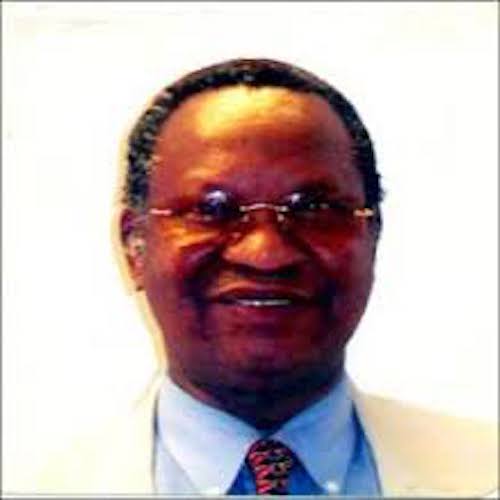
Biosciences
Nigeria
Prof Youdeowei obtained his B.Sc. in Zoology in 1962 from the University College of Ibadan (Nigeria) and a PhD in Agricultural Entomology in 1967 from the University of London (UK).
He then joined the Department of Biology of the University of Ibadan where he taught biology and ecology of tropical insect pests. Currently, he is an International Consultant in integrated production and pest management working in development projects for international organisations (FAO, World Bank) and african countries (Cameroon, Nigeria, Ghana).
His areas of specialisation include training research and development, pesticides management, agricultural education and training, scientific communication and agricultural project formulation and evaluation. He has been Head of the Department of Agricultural Biology, Dean of Agricultural and Forestry at the University of Ibadan, Scientific Coordinator of the training course in Pest and Vector management systems of the International Group ICIPE/UNEP.
He has served as Director of Training and Communications at the West Africa Rice Development Association (WARDA), Director of Research and Consultancy of the Federal University of Technology (Abeokuta), Director of Aba Textiles Mills, Director of the West African Book Publishers Limited (Nigeria).
He has also been Executive Chairman of the University of Ibadan, Chairman of the Nigerian pesticides Committee; member of the Board of Directors of the Pesticides Actions Network (UK) and member of the Governing Council (ICIPE). He is a founding member of AAS, Fellow of TWAS and several other professional societies. He has national, regional and international awards and recognitions and has 108 publications (2009).

Elmandjra Mahdi
Morocco
|Elected: 1985
Cultural Sciences, Humanities & Social Sciences
View Profile
Cultural Sciences, Humanities & Social Sciences
Morocco
Not Found
The requested Content is currently unavailable.


Cultural Sciences, Humanities & Social Sciences
Ghana
Not Found
The requested Content is currently unavailable.

Engineering Technology & Applied Sciences
Tanzania
Not found.
The content you are looking for is currently not available.
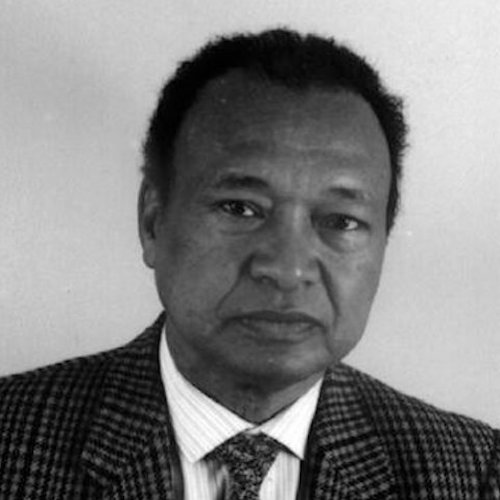
Physical Sciences
Madagascar
Prof. Andriambololona was educated at the University of Madagascar, and the University of Aix Marseille - France in 1956 where he obtained his Doctorate in Physics in 1967.
He became Professor in 1977 and served as Director of Physics Department in Antananarivo. He is the founding Director General of “Institut National des Sciences et Techniques Nucléaires” (INSTN) of Madagascar.
He is TWAS Fellow, founding vice president of AAS and member of the New York Academy of Sciences. He is a member of the scientific association AFRA and has 209 publications (2009). His research interest involves Elementary particles physics – Quantum Field Theory – Relativity – Quantum Mechanics, Nuclear Physics, X-Ray Fluorescence Analysis – Spectroscopy Analysis of Radioactive and non-radioactive Malagasy ores; Radiation Protection – Environment Study. His honours include Fulbright exchange Professor of Milwaukee University, USA. He was awarded the “Grand Croix de l’Ordre National Malgache”.
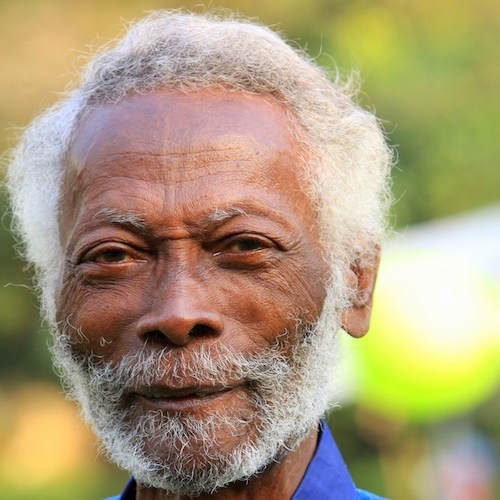
Biosciences
Ghana
Ebenezer Laing, FGA, OV (28 June 1931 – 19 April 2015) was a Ghanaian botanist and geneticist who served as the Pro-Vice Chancellor of the University of Ghana, Legon.He was a professor at the University of Ghana, Legon, and later an emeritus professor. Laing, together with his university classmate and faculty colleague, George C. Clerk (1931–2019), was one of the first Ghanaian academics to specialise in botany as a scientific discipline and contributed significantly to the growth of the field in Ghana. He was also a Fellow of the Ghana Academy of Arts and Sciences, inducted in 1965.
Ebenezer Laing was appointed a lecturer at the University of Ghana’s botany department and rose through the ranks to become a full professor. He later became the chairman of the botany department. His research was in plant genetics.[6] He also served as the Hall Master of Legon Hall, of which he was an alumnus. Other senior administrative positions he held include the Dean of the Faculty of Science and the Pro-Vice Chancellor of the university. He was also an external examiner at other universities on the African continent.[1] During his long teaching career, he had courtesy appointments at various departments at the University of Ghana including the Institute of African Studies, the Regional Institute for Population Studies, Department of Geography, Psychology Department, Department of Community Health at UGMS, Korle-Bu, School of Public Health as well as the Legon Centre for International Affairs and Diplomacy (LECIAD).
He was also a board member, advisor or consultant to several institutions: the Ghana Atomic Energy Commission, Ghana Academy of Arts and Sciences where he was elected a Fellow in 1965, the Council for Scientific and Industrial Research (CSIR), Cocoa Research Institute, the Volta Basin Research Project and the Population Dynamics Program at the University of Ghana, Legon. He was also a Founding Fellow of the African Academy of Sciences. He also provided advisory services to the development of new higher education initiatives in both the public and private sector in Ghana. These include the University for Development Studies, the Presbyterian University College and the Anglican University College of Technology.
He was engaged in international work, among other designations as a member of the joint WHO/FAO/UNEP Panel of Experts on Environmental Management for Vector Control (PEEM) between 1981 and 1995. He co-chaired the ninth PEEM meeting at the World Health Organization in 1989, and was the national counterpart for the organization of the 1992 three-week Health Impact Assessment training course "Health Opportunities in Water Resources Development", held in Akosombo, Ghana.

Medical & Health Sciences
Ghana
Not Found
The requested Content is currently unavailable.



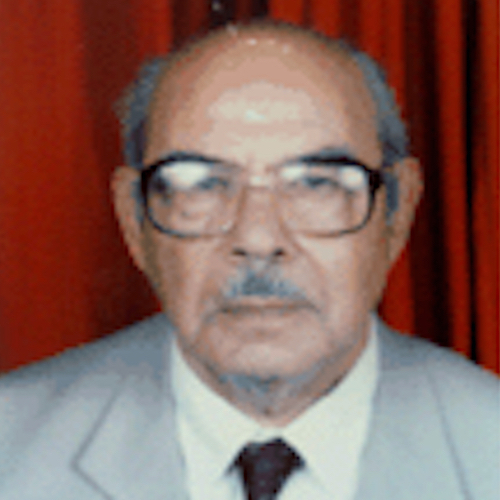
Mathematical Sciences
Egypt
|
Prof Ashour has a D.Sc. Sciences – Maths in 1948, PhD Philosophy – Maths in 1967 from London University. He is Professor Emeritus of Applied Mathematics at Cairo University. He was previously president of the Arab Union of Mathematical and Physics. |
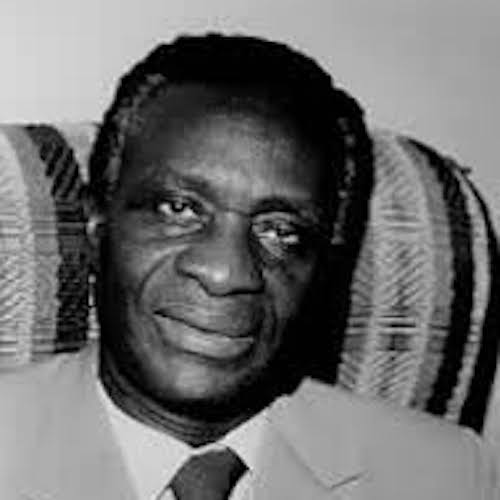
Medical & Health Sciences
Madagascar
Lambo was born in Abeokuta, Ogun State. He attended the famous Baptist Boys' High School, Abeokuta from 1935 to 1940. He then proceeded to the University of Birmingham, where he studied medicine. To further his studies and become specialized, in 1952, he enrolled at the Institute of Psychiatry, King's College London. Adeoye Lambo in due time became famous for his work in ethno-psychiatry and psychiatric epidemiology.
In 1954, after studying and working as a surgeon in Britain, Dr Lambo returned to Nigeria where he was soon made the specialist in charge at the newly built Aro psychiatric hospital, Abeokuta. By then, Nigeria was undergoing a transition towards political independence which had hastened a culture of innovation and change instead of a period of feared stagnation or even regression. Prior to the independence movement, the Federal Government had tried to replicate the European system of creating asylums in the cities for lunatics and mentally ill individuals who were regarded as a social nuisance in the streets of many urban areas. The need to put the social anomalous individuals under control, sometimes care and confinement was initiated and a few asylums including one at Yaba were built. However, the institutionalization of mental health was viewed with suspicion by many Nigerians and many still depended on native medicines and herbalists for care. Adeoye Lambo sensing a ground for development, used the opportunity of an independent regional government to start his own out-patient treatment services, the Aro village, pioneering the use of modern curative techniques combined with traditional religion and native medicines. Adeoye, while at Aro, sought the help of farmers near the asylum to take some of the patients as laborers, while they simultaneously underwent medical treatment, and the patients also paid for any extra services required, such as housing. He traveled around the country and brought in a few traditional healers from different parts of Nigeria as practitioners. His style helped relieve public mistrust of mental health hospitals and introduced to public discourse the care and treatment of mentally ill citizens. He is credited as providing a platform for re-integrating mentally ill patients into a normal setting and environment and to a certain extent shedding at least some of the stigma associated with those suffering from mental illness.

Biosciences
Kenya
Prof. Gombe was born in Seme, Kisumu District in 1938. He was educated at Maseno School, Makerere College, (1958-1960), London University (1961-1967) and Cornell University (1969-1972). His research interests have been on aspects such as malnutrition, mineral deficiencies, adverse environmental and parasitic infections that may cause infertility. He demonstrated that many of these factors (including tryponasomiasis) impair reproduction by damaging certain areas of the brain. He has examined male fertility and how it can be controlled for family planning purposes. Long-term safety of contraceptive drugs is his special concern.
Prof. Gombe has lectured at the Department of Animal Physiology, University of Nairobi since 1968. He has published over 60 scientific papers, mainly in the area of reproductive physiology and endocrinology. He is a member of 12 national and international scientific organizations. He is a Fellow of the Third World Academy of Sciences. He is the Secretary and Founder Fellow of African Academy of Sciences. He is currently the Director of Reproductive Biology Unit, a constituent of the National Centre for Research in Reproduction which he helped to found.


Biosciences
Democratic Republic of the Congo
Not Found
The requested Content is currently unavailable.

Nyatepe-Coo Djodji Akoly
Togo
|Elected: 1985
Cultural Sciences, Humanities & Social Sciences
View Profile
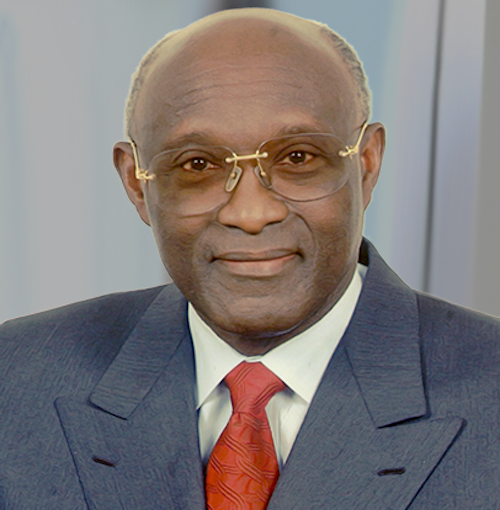
Biosciences
Ghana
Prof Ayensu obtained his M.Sc. in 1963 from George Washington University and a PhD in 1966 from the University of London. He then became Scientist-in-charge of the Smithsonian biological survey at Smithsonian Institution (US).
His research interests focus on tropical biology and ecology, economic botany, comparative anatomy and phylogeny of flowering plants, behaviour of fruit-eating bats, biomedical research of medicinal plants, development of low carbon growth plants and development of biomass plantations for bio energy.
He has investigated major World Bank Development Projects such as the Chad-Cameroon Oil Pipeline, Petroleum Sector Management Capacity Building, China Western Poverty Reduction and Brazil Land Reform Poverty Alleviation. He has served as Director and Senior Scientist at the Smithsonian Institution and Senior Advisor to the President on Strategic Planning and Policy Development at the African Development Bank.
He served as Chairman of Africa Practice, the Council for Scientific and Industrial Research (CSIR) in Ghana, etc. He was a member of the Board of Trustees of (1) the UN University for Peace, (2) the management of intellectual property rights in health research and development (MIHR, UK), and of the Energy Commission at the World Bank for the development of the West African gas pipeline. He is a founding Fellow of The African Academy of Sciences, and a member of TWAS.

Biosciences
Zimbabwe
Not Found.
The content your are looking for is currently unavailable.

Physical Sciences
Sudan
Professor Mohamed Hag Ali Hassan is President of The World Academy of Sciences (TWAS), Italy; President of the Sudanese National Academy of Sciences (SNAS); Chairman of the Governing Council of the United Nations Technology Bank, Turkey and Chairman of the International Advisory Board of the Centre for International Development (ZEF), Germany.
He was Professor and Dean of the School of Mathematical Sciences, University of Khartoum; President of the InterAcademy Partnership (IAP); founding Executive Director of TWAS; President of the African Academy of Sciences (AAS); founding President of the Network of African Science Academies (NASAC); Chairman of the Council of the United Nations University (UNU); and Chairman of the Honorary Presidential Advisory Council for Science and Technology, Nigeria.
Among his honours: Comendator, Grand Cross, and National Order of Scientific Merit, Brazil; and Officer, Order of Merit of the Italian Republic. He is a recipient of the G77 Leadership Award and the Abdus Salam Medal for Science and Technology
He is a member of eleven merit-based academies of science, which include, TWAS, AAS, the academy of Sciences of South Africa; the Pontifical Academy of Sciences and Hassan II Academy of Science and Technology
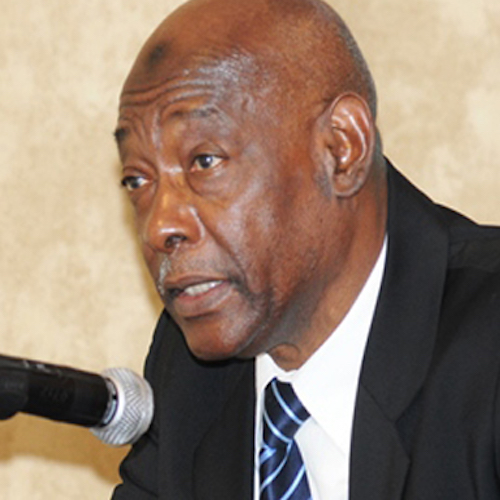
Agricultural & Nutritional Sciences
Senegal
Dr. Touré obtained his M.Sc. in 1968 from the Agronomic National High School of Rennes (ENSAR), PhD in 1973 from the University of Rennes and held a position of Technical Adviser to the Extinction Department on Education and Training at the Ministry of Agriculture (Morocco).
Over the years, he served in Senegal as Program Leader of the Soil Chemistry and nutrients management program, Director of the national rice research Centre of the Senegalese Institute for Agricultural Research (ISRA), Director of the Department of Agricultural and agro-industrial research at the Ministry of Sciences and Technology.
He was the Executive Secretary of the Special Program for African Agricultural Research (SPAAR), Lead specialist for agricultural services for Africa Region and Team Leader for the Sustainable Land Management Program at the World Bank; Team Leader for land and water resources at the Global Environment Facility (GEF).
He was member of the Executive Committee for the Forum for Agricultural Mechanism (FARA), First Chairman of the Board of Trustees of West African Rice Research and development Association (WARDA), Vice Chairman of the Board of the Trustees of ICIPE and member of the UNDP/FAO scientific and Advisory Committee of locust research. He is a Founding member of the AAS and Fellow of TWAS.

Doulou Victor
Democratic Republic of the Congo
|Elected: 1985
Agricultural & Nutritional Sciences
View Profile
Agricultural & Nutritional Sciences
Democratic Republic of the Congo
Not Found
The requested Content is currently unavailable.
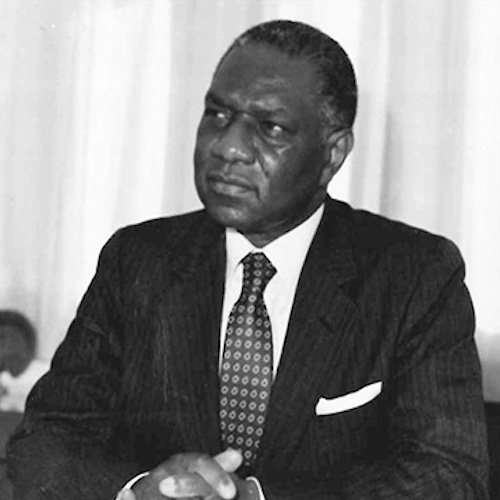
Biosciences
Kenya
Professor Thomas Risley Odhiambo (February 4, 1931 – May 26, 2003) was a Kenyan entomologist and environmental activist who directed research and scientific development in Africa.
Prof Odhiambo was educated at Maseno School in Kenya,[1] Makerere University in Uganda and Queens' College, Cambridge in United Kingdom.
He founded the International Centre of Insect Physiology and Ecology (icipe) and helped to establish three institutions of learning: the Third World Academy of Sciences, the Kenyan National Academy of Sciences and The African Academy of Sciences.
He encouraged the younger generation of thinkers to venture into the fine arts, investigate its relation to history of life sciences and to go out and create global academies and research institutions using technology. His inspiring effect led to the re–emergence of accumulated indigenous knowledge and technology systems in the modern African world. He led visions on agricultural development in Africa by initiating effective scientific projects leading to advancement in growing indigenous crops and disseminating methods of insect control. Educated in Cambridge University, UK, Prof. Odhiambo completed a PhD in 1965 under the supervision of the guru of insect physiology, Vincent Wigglesworth, producing a ‘phenomenally productive’ thesis on the reproductive physiology of the desert locust, producing a series of 14 papers on the topic. He marked his arrival into the world of insect science through a sole-authored short communication in Nature journal titled, Metabolic effects of corpus allatum hormone, in the desert locust, Schistocerca gregaria. [2]
Founder of ICIPE (International Centre for Insect Physiology and Ecology) Upon his return to Kenya, Prof. Odhiambo, took up a position as a lecturer in the Department of Zoology at the University of Nairobi. In 1967, he was approached by the Science journal to write a review on the status of science in Africa[3]. In the article, Prof. Odhiambo observed that scientific research was urgently required in the then postcolonial Africa, to develop environmentally safe strategies to increase agricultural production, and to address prevalent tropical and vector borne diseases. He stressed that the science conducted in Africa should have at its heart the elevation of the livelihoods of smallholder farmers.
At the same time, Prof. Odhiambo noted, the indigenous scientific community in Africa was ‘woefully small’, and the continent was hardly equipped, from a financial and infrastructural point of view, to effectively tackle the challenges at hand. He, therefore, proposed that Africa’s best long term solution towards conducting effective research was to concentrate efforts in a few centres of excellence.
Giving the example that eventually led to the establishment of icipe, Prof. Odhiambo recommended that Africa’s insect research could be located in one centre that would have the best equipment, which would be put to the best advantage. Such a centre would have a permanent staff; it would also train young researchers from Africa and offer opportunities to other scientists from across the globe looking for ‘periodical renovation’. In Prof Odhiambo’s words, the insect science centre of excellence would become ‘a powerhouse for the initiated and those wishing to be initiated into research’.
Prof. Odhiambo’s ideas got support from, among others, Carl Djerassi, a world-renowned American scientist. Together, Odhiambo and Djerassi set the wheels in motion for the launching of icipe. Eventually, they gained the support of 21 national academies of science across the globe, who became sponsors of icipe, providing the needed external research directors.
icipe was declared open for business in 1970, one of its objectives being the creation of motivated and highly talented ‘human capital’ in insect research and related areas of science, to enable Africa to sustain herself and to lead the entire pan-tropical world in this area of endeavour.
Prof Odhiambo later remarked: “The idea was actually very simple, get the very best people and then if you have more money, put buildings and equipment around them.”
In the beginning money was in short supply at icipe, and the Centre’s headquarters consisted of a number of rented wood-frame barracks perched on the hillside of Chiromo Campus at the University of Nairobi. The first postdoctoral researcher arrived to work in a garage that flooded when it rained and the budget was improvised from week to week.
Today, icipe stands as a centre of scientific excellence and training in Africa. And as Prof. Odhiambo had hoped, it is indeed staffed mainly by indigenous African scientists. icipe currently has a staff of more than 400, and the Centre collaborates with over 200 national systems, research institutes and universities around the world.
Prof Odhiambo’s vision of holistic science is today embodied in the Centre’s 4Hs paradigm, denoting human, animal, plant and environmental health. Its major research areas include disease vectors, such as mosquitoes and tsetse, as well as pests of cereals and horticultural crops. icipe scientists are also conducting research into beneficial insects such as bees and silkworm moths.

Elected: